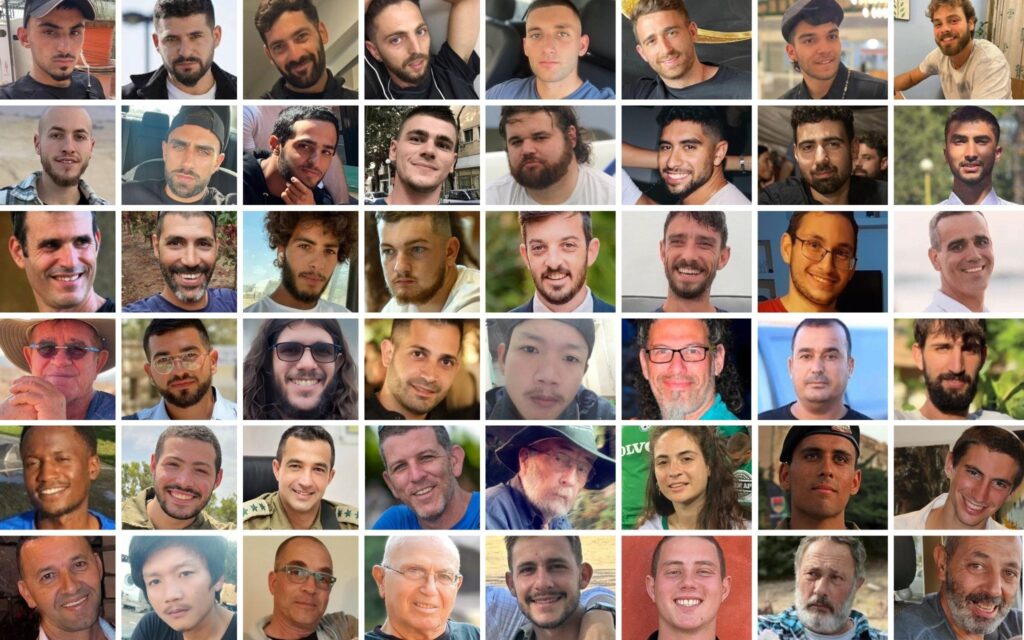After 737 days of war, anguish, and waiting, Israel is bracing for the final hostage release — the moment when the last 20 living captives held by Hamas are brought home.
“This is a day of tension, anticipation, hope, great pain and joy,” said Gal Hirsch, Israel’s Coordinator for the Hostages and Missing Persons, as his team completed final checks for what may be the most emotionally charged operation since the war began. “We are at full readiness.”
The release, set for 2 a.m. Monday, will mark the completion of the first phase of the sweeping ceasefire agreement between Israel and Hamas — a deal intended to end nearly two years of brutal conflict and bring closure to hundreds of families torn apart since October 7, 2023.
Hirsch described the upcoming operation as the culmination of an unprecedented national effort — a mix of military precision, humanitarian coordination, and raw emotion.
The International Committee of the Red Cross will transport the hostages out of Gaza in a convoy of up to ten vehicles, including an ambulance and a minibus, before handing them over to Israeli forces along the “yellow line,” the first designated withdrawal zone from the Strip.
Once in Israeli custody, the group will be flown to the Re’im base in the Negev — the same compound that received the earliest waves of released hostages in 2023 and 2024, now expanded and fortified for what Hirsch called “the most comprehensive and sensitive operation to date.”
“This time, it’s not a partial release or a symbolic gesture,” Hirsch said. “It’s the return of everyone who remains alive.”
At Re’im, each freed captive will be taken into a private room for immediate medical evaluation before reuniting with relatives who have been waiting for two years. Psychologists, doctors, and trauma specialists will be on site to stabilize and assess each person’s physical and emotional condition.
From there, the hostages will be airlifted by Israeli Air Force helicopters to three hospitals across central Israel: Sheba Medical Center at Tel Hashomer (10 hostages), Ichilov in Tel Aviv (five), and Beilinson in Petah Tikva (five). Each will be placed in what officials are calling “safe rooms” — sealed spaces reserved for families and medical teams only.
Prime Minister Benjamin Netanyahu personally toured the medical facilities and military bases on Friday, overseeing final briefings. “He gave very specific instructions to ensure that every detail, down to the smallest logistical point, is covered,” Hirsch said.
Additional emergency capacity has been set aside at Soroka Hospital in Be’er Sheva and Barzilai in Ashkelon. “We are prepared for every scenario,” Hirsch added. “This is not a symbolic event — it’s the completion of a national mission.”
Alongside the 20 living hostages, Hamas is expected to return the remains of at least a dozen of the 28 Israelis confirmed to have died in captivity.
Once the Red Cross completes the transfer of the living, it will shift to collecting the coffins of the dead, which will be handed over to Israeli forces. The coffins will be wrapped in Israeli flags and received with full military honors at Re’im.
A military rabbi will lead kaddish before the bodies are transported to the Institute of Forensic Medicine in Abu Kabir for identification. Families will be notified as soon as confirmations are made.
Those whose loved ones remain unaccounted for will not be left in limbo. A multinational task force — including Israel, the United States, Egypt, Qatar, Turkey, and the Red Cross — will immediately begin operations to locate and retrieve any remaining bodies.
“We have demanded a 100 percent effort,” Hirsch said. “There are sites in Gaza we have already sealed off — areas where we believe hostages were buried. No reconstruction will occur there until our people are found.”
The release of the last hostages will close a harrowing chapter in Israeli history. It is expected to trigger the reciprocal release of Palestinian prisoners held in Israeli jails — but only once all 20 captives are safely back.
Under the terms of the deal, for every deceased Israeli hostage returned, 15 bodies of Hamas militants will be transferred back to the group.
Among the 48 hostages accounted for in this final phase are four foreign nationals — two from Thailand, one from Nepal, and one from Tanzania — whose return will be coordinated alongside their Israeli counterparts.
Hirsch emphasized that despite the scale of the moment, the mission remains incomplete until every captive, living or dead, is home. “Even tomorrow, the mission is not over,” he said. “It will not be complete until all our hostages are home.”
For the families who have waited through 737 days of uncertainty, it will be a night that combines relief with grief — the end of a nightmare, and the beginning of a long national reckoning.
(YWN World Headquarters – NYC)












One Response
The beginning of a long revalidation, both mental and physical, and continuous Tefillos.